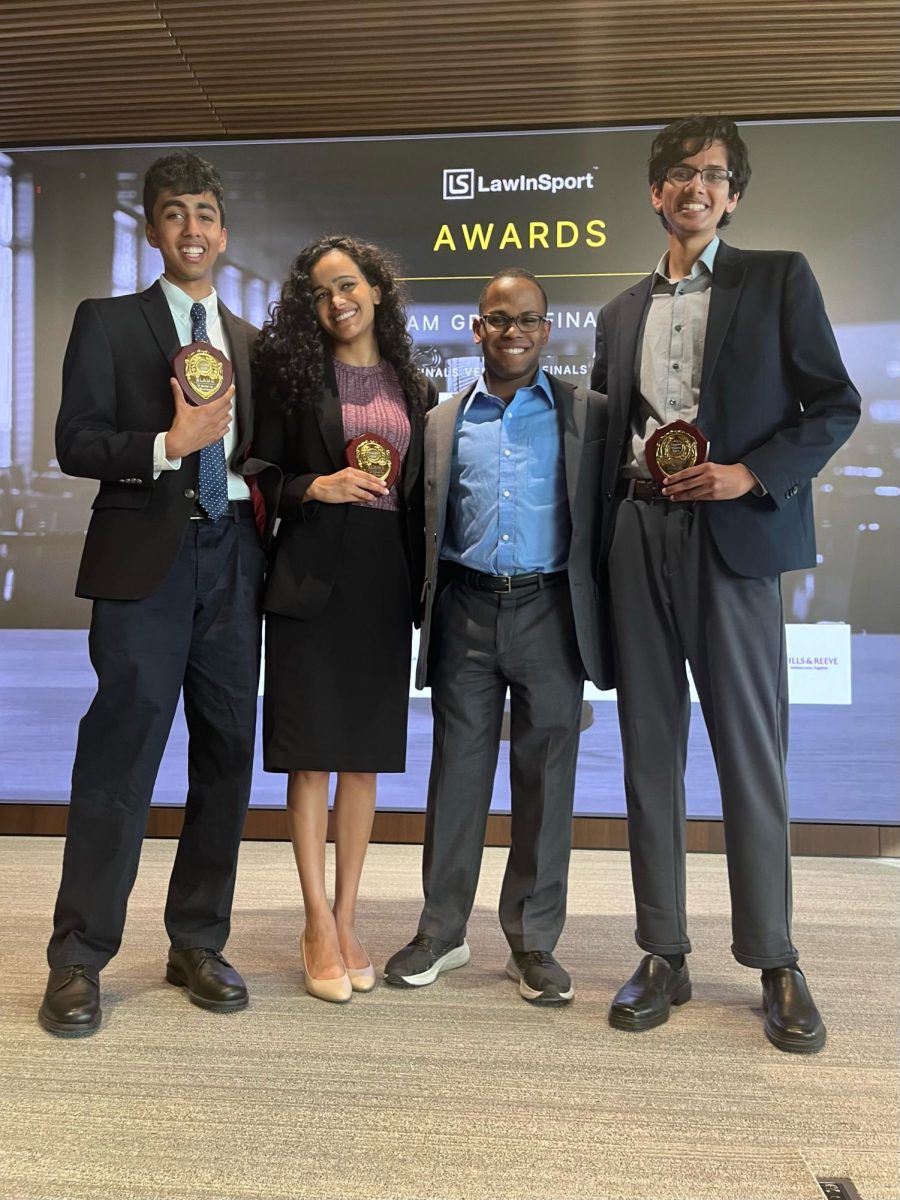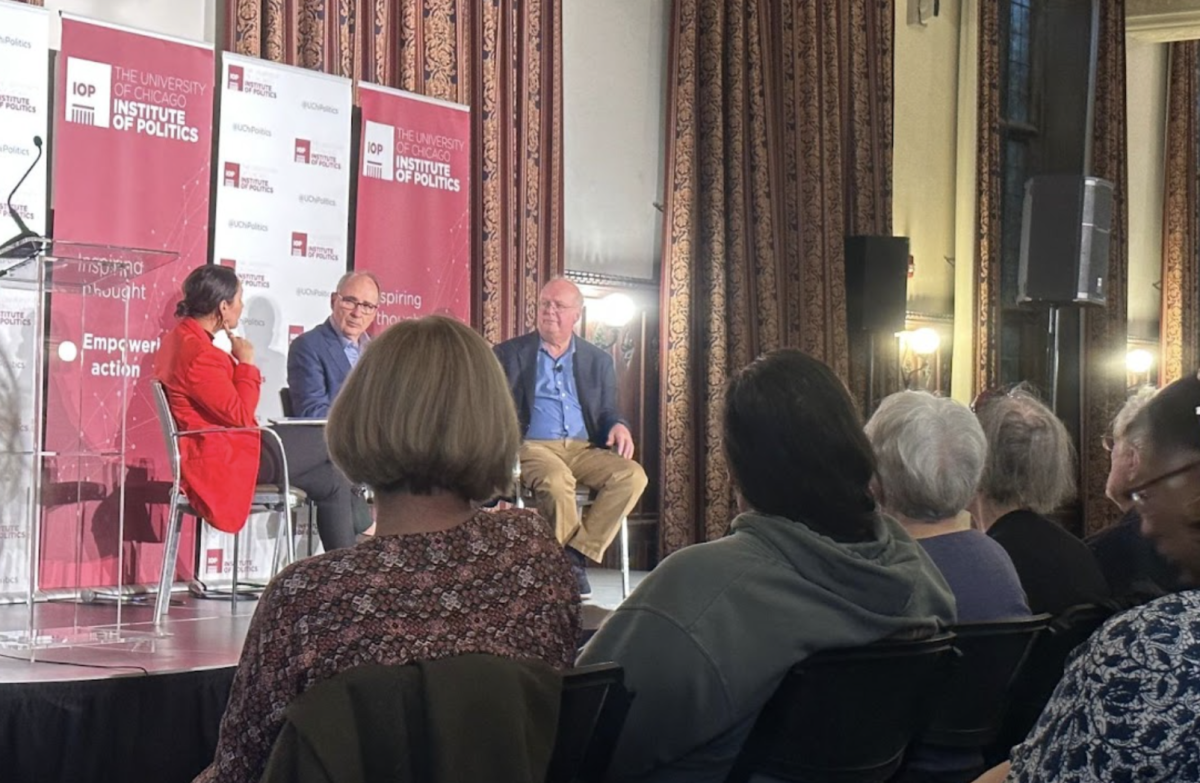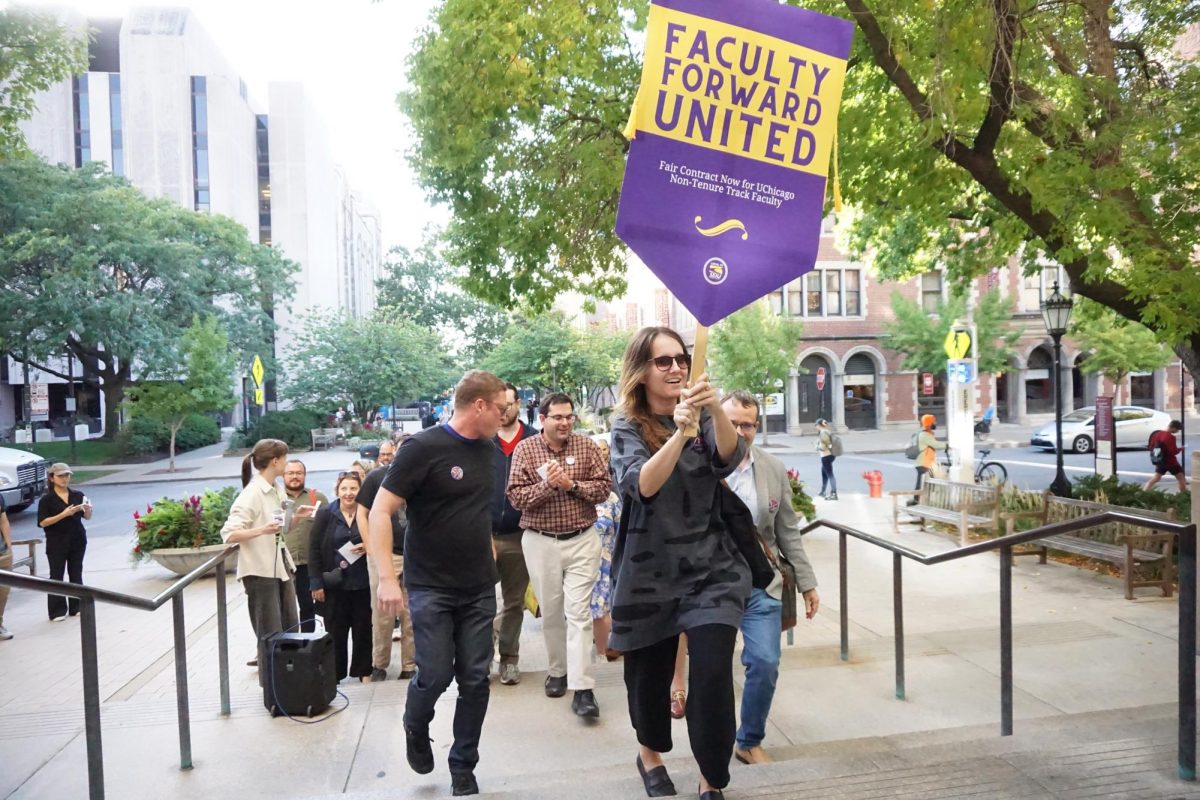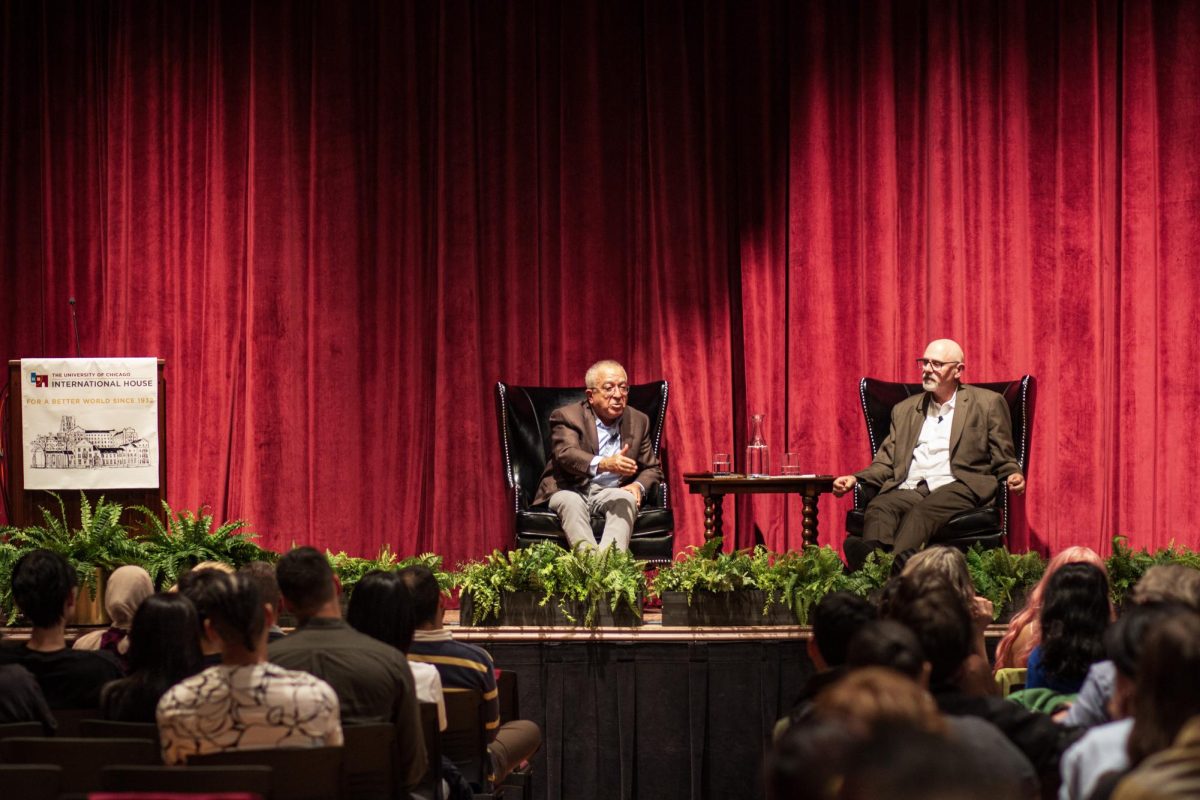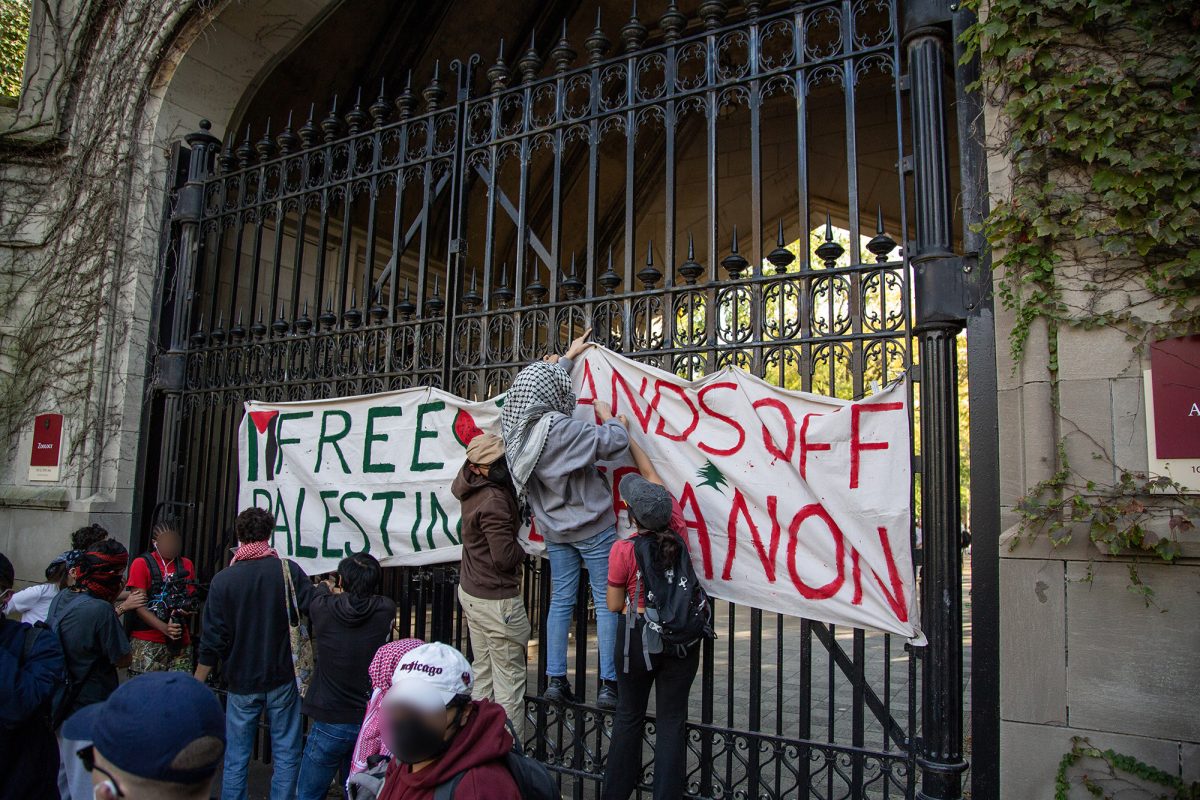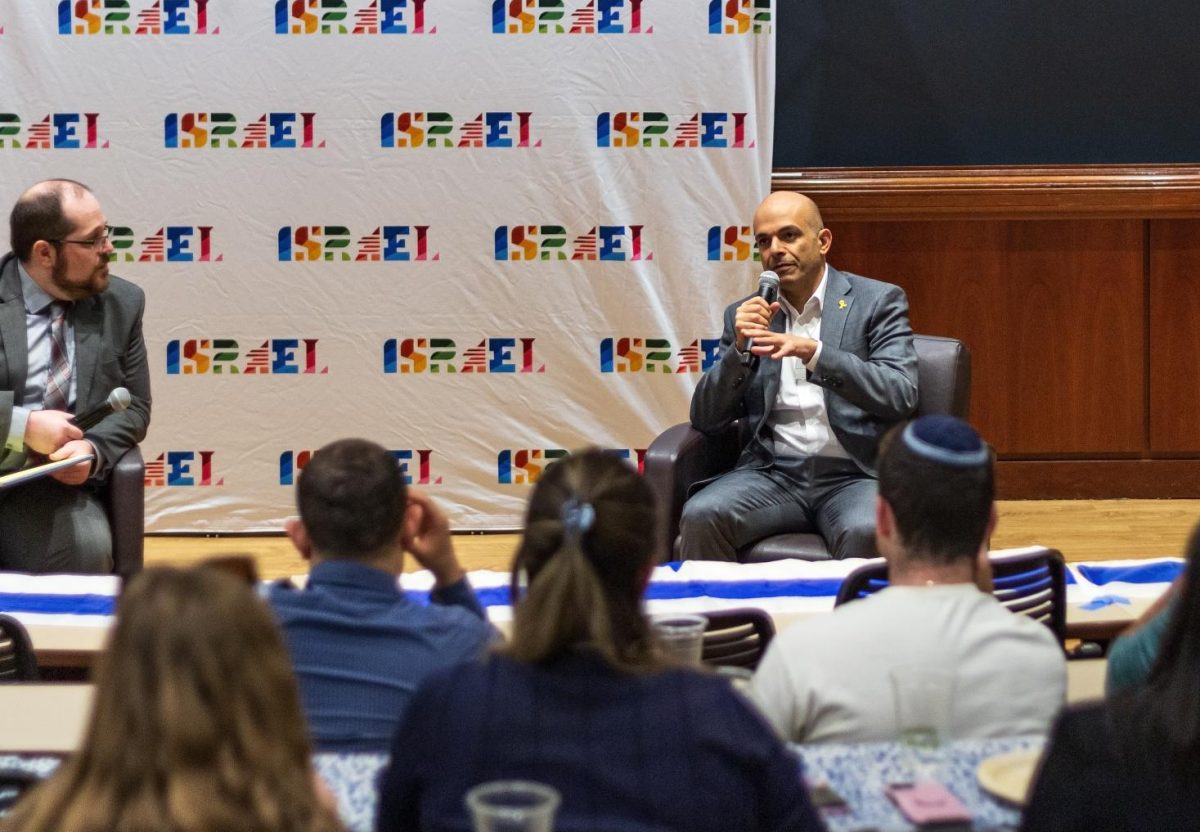Politicians clashed with comedians Tuesday night as four slates debated RSO funding and party shortages at the annual Student Government (SG) debates, sponsored by the Inter-House Council and held in the McCormick-Tribune Lounge of the Reynolds Club.
Emphasizing their experience and commitment, the Full Slate Ahead and A New Day parties both discussed the need to involve more students in SG.
The two slates rarely took offense to their less-serious counterparts, the Delta Upsilon–sponsored Moose Party and the oddball Big American Party.
The subject of RSO funding was contentious, with New Day’s presidential candidate, Divinity School student Ian Mulhauser, arguing that the funding process is subjective and results in smaller RSOs getting “stomped on by larger RSOs.”
Third-year Phil Caruso, the presidential candidate from Full Slate Ahead, said the current funding process was fair but that RSOs need better training in order to “avoid some of the confusion.”
In a rare serious remark, the Big American Party agreed.
“You have to recognize which RSOs have strong support from the student body––there’s a disconnect between the [Student Government Finance Committee] and the students,” said presidential candidate Zach Binney, a second-year in the College.
Both New Day and Full Slate Ahead also discussed the importance of involving graduate students in SG.
“A lot of graduate students don’t even know it exists,” said Alex Bratsafolis, a second-year in the Law School and Full Slate candidate for VP for Administration.
New Day said it is the first slate ever to have a graduate student run for president.
Outgoing SG President Robert Hubbard made opening remarks and later had to ask candidates and audience members to refrain from drinking during the debate. On several occasions he reminded attendees to “keep profanity to a minimum.”
Candidates for the Big American Party introduced themselves as Richard Nixon, Aaron Burr, and Marion Barry.
The slate complained about high prices at dining halls and Bart Mart.
“We will not be crucified on a cross of Flex!” shouted second-year Pat Lange, the candidate for VP of student affairs, reiterating the party’s aim to switch University food vendors to the gold standard.
Binney declined to answer several questions, initially citing the Fifth Amendment (freedom from self-incrimination), then the Sixth Amendment (the right to a speedy trial), and finally, the 21st Amendment (repeal of prohibition).
Upon pleading the 21st, he began drinking from a silver hip flask, which Hubbard promptly confiscated——but only after first helping himself to a swig.
Candidates for the Moose Party, fraternity Delta Upsilon’s annual slate, bragged that they had lost the election 12 years running. They arrived inebriated, dressed eclectically, and were accompanied by a throng of enthusiastic supporters.
Security “is a serious issue,” said third-year Robert Carlson, the Moose Party presidential candidate. “Just the other day, I came home to my dorm to find a naked woman in my bed.”
One heckler shouted back: “Do you even go to the U of C?”
The slate promised to replace campus buses with hippopotami if elected, although they later switched and decided to replace them with beer-fueled hybrid Zambonis instead.
Near the end of the debate, several rowdy Moose Party supporters were escorted out of the room by security. They then attempted to break into the lounge through the outside windows on 57th Street and University Avenue.
Liaison to the Board of Trustees
The evening started with candidates squaring off for the position of Undergraduate Student Liaison to the Board of Trustees.
“Is this a dangerous liaison?” shouted one Moose Party supporter.
The two student liaisons to the Board of Trustees—one elected from the undergraduate and the other from the graduate student body—serve as student representatives to the Board. They make presentations each quarter before the Board’s Student and Campus Life Committee and communicate informally with trustees.
Unlike the SG candidates, the students running for Liaison presented themselves seriously and discussed their visions for the future of the University.
Second-year Hollie Gilman and third-year Tim Richards both said they wanted undergraduate life to be more social, while third-year Paula Mejia and second-year Dan Kimerling each supported a more traditional conception of the U of C.
Richards said the University could better compete with rival institutions by addressing “the problem of this being the place where fun comes to die,” he said. “The problem is not academic rigor; rather, is this a place where fun can exist?”
“I think it’s the kind of place where you can be academic and you can be social,” Gilman said. “I’m not so much about making this the most popular place ever, I’m about making it a school that people like.”
Mejia disagreed. “Quite frankly, the Board of Trustees is not interested in what parties you want to have on the weekends and whether you like your classes,” he said. “The trustees are concerned with the long-term goals of the University.”



